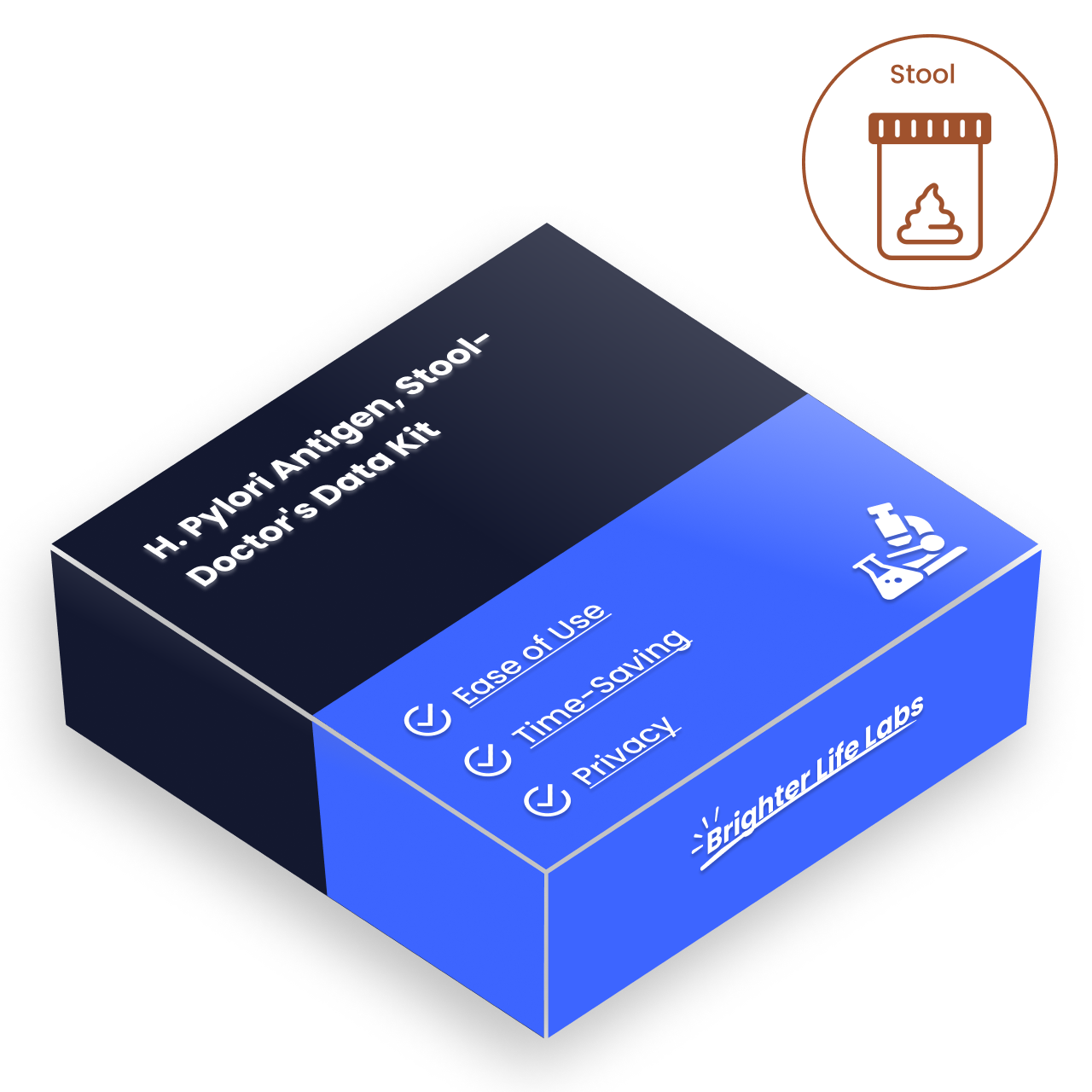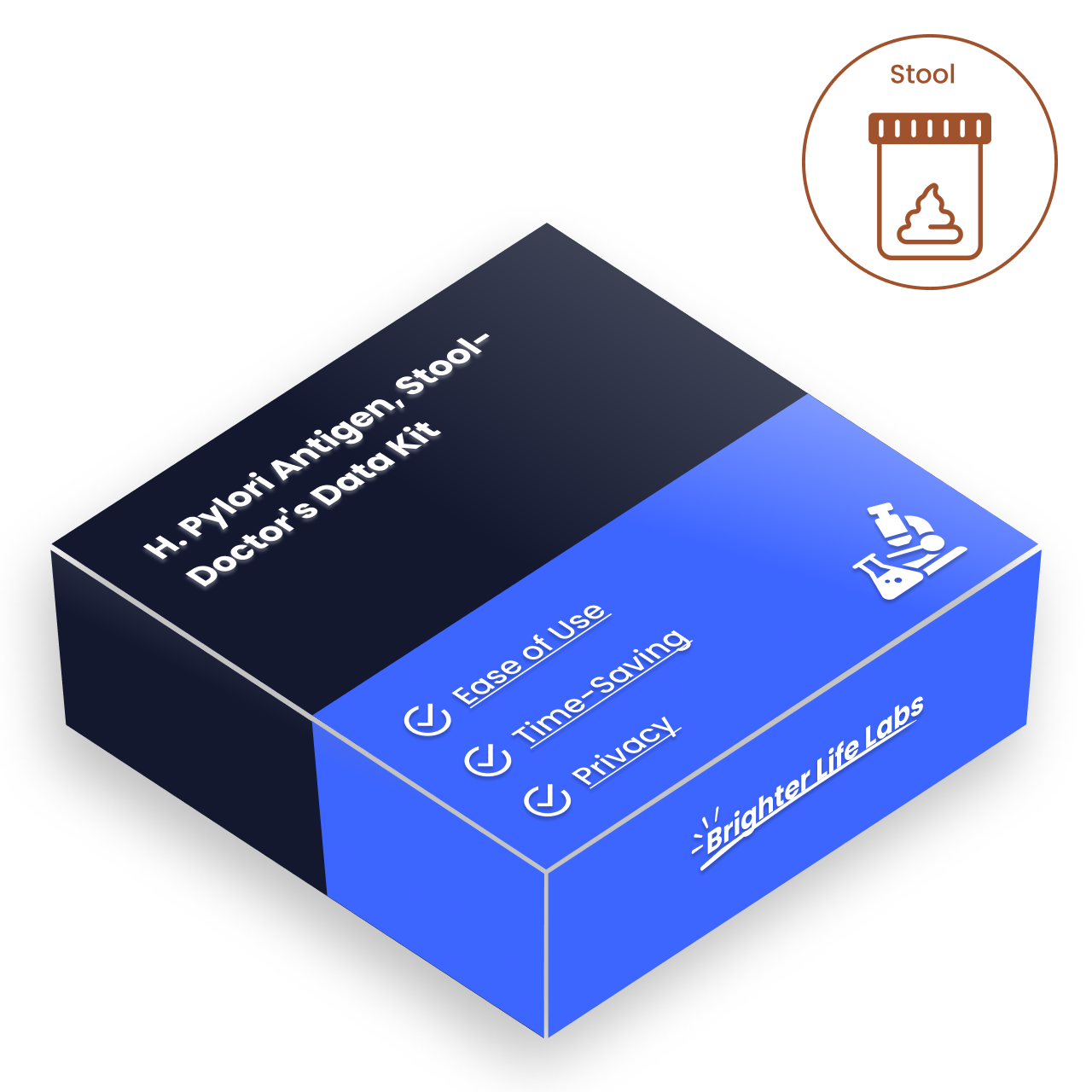Doctor's Data
H. Pylori Antigen, Stool-Doctor's Data Kit
H. Pylori Antigen, Stool-Doctor's Data Kit
Couldn't load pickup availability
Note: This is a home collection test kit that will be mailed to you.
Fasting Required:
No
Lab:
Doctor's Data
Specimen:
Stool
Results:
Average processing time 5-7 business days
Note: Result turnaround times are an estimate and are not guaranteed. Our reference lab may need additional time due to weather, holidays, confirmation/repeat testing, or equipment maintenance.
Special Instructions:
If you are taking antifungal or antibiotic medications, please finish the course of medication, and then wait three days before starting this collection. Please refrain from taking digestive enzymes, antacids, and aspirin for two days prior to and during the specimen collection, unless otherwise instructed by your physician.
Additional Information:
This test can be added on to the any of the Comprehensive Stool Analysis kits from Doctor's Data.
Description:
This microorganism, which can be found on the stomach mucosa of infected people, causes very frequent and mostly silent infections that can produce gastritis, gastric ulcers and other serious pathologies. H. Pylori is known to be a major cause of peptic ulcer disease and is very common, especially in developing countries. The strong correlation between the presence of H. pylori and histologically confirmed gastritis, peptic ulcer disease and gastric carcinoma, as well as disease resolution after H. pylori eradication, indicates a causative relationship. The ecological niche in humans appears to be restricted to the stomach and duodenum. Patients who harbor the organism are divided into two basic groups: a) colonized and b) infected. Patients who test positive for H. pylori yet have no signs or symptoms of gastrointestinal disease are considered "colonized." Patients who test positive for H. pylori and present with signs or symptoms of gastrointestinal disease are considered "infected." The process by which a colonized individual becomes infected remains unclear. The process by which patients become colonized is also still under investigation.
Share


